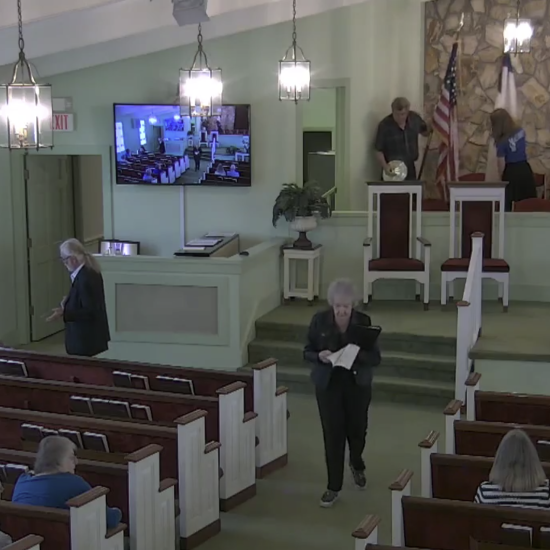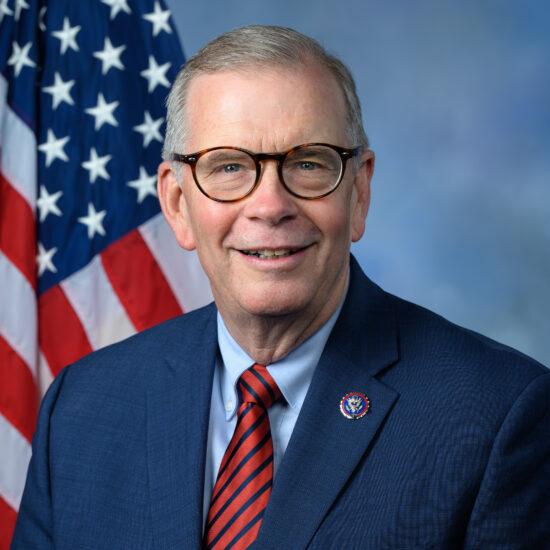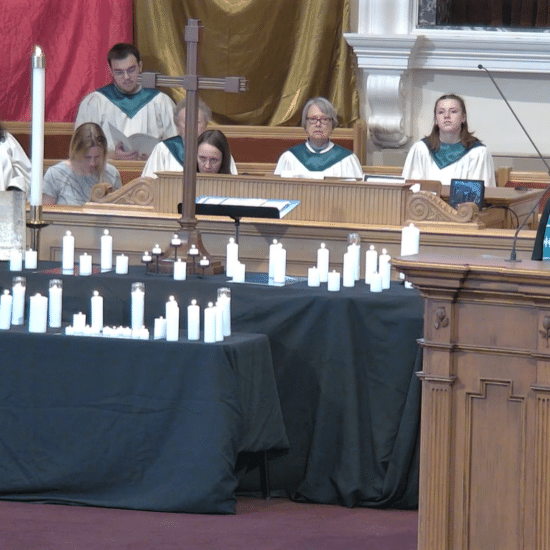ABILENE—Christian ethics applies the gospel—the good news—of Jesus Christ to all of life, Bill Pinson told participants at the T.B. Maston Lectures in Christian Ethics April 11-12 at Hardin-Simmons University’s Logsdon Seminary.

T. B. Maston
|
That statement describes the central core of the lifelong focus and commitment of the lectureship’s namesake—Maston, the acknowledged Baptist pioneer in the study and teaching of Christian ethics, Pinson said.
Maston taught Christian ethics at Southwestern Baptist Theological Seminary in Fort Worth from 1922 through 1963. He wrote most of his 21 books during the 25 years of his retirement. He died at age 90 in 1988.
Pinson, executive director emeritus of the Baptist General Convention of Texas, earned his doctorate in Christian ethics from Southwestern Seminary the year Maston retired. He delivered the 11th annual Maston Lectures on the life and thought of his teacher, mentor and friend.
Maston “dealt with a wide variety of ethical and social issues, such as race relations, family life, church-state issues, economics and daily work, war and peace, and personal moral issues such as sex, drugs, pornography, pride, greed and gluttony,” Pinson said.
“He not only taught and wrote on the subject, but he lived it and did so in such a remarkable way that he inspired a host of disciples to spread the Christian ethics emphasis far and wide. He was indeed an ethical man and an ethical teacher.”
Christians can learn to live life well and to live life ethically by focusing on three themes that recur in Maston’s teaching and writing, Pinson said. They are:
• Basic resources for life.
“In Maston’s thought, the basic resources for living life well are the Bible, relationship with Jesus Christ, an understanding of history, and a knowledge of current circumstances and events,” Pinson reported.
Maston “always emphasized that God was the ultimate authority for all of life,” he said, citing the late pastor/seminary president Frank Pollard, who noted, “Maston’s teaching has contributed to much change for good simply because he approached what many considered ‘liberal’ subjects (social issues) with a thoroughly ‘conservative’ biblical application.”
Even so, Maston taught the Bible cannot take the place of Jesus Christ and the Holy Spirit, Pinson said, adding Maston also applied biblical ethics “fully armed with facts about both the history and current circumstances of an issue.”
• Unifying concept for life.
“He believed the cross was the ideal symbol for the Christian life,” Pinson said of his mentor. “The cross pictures the Great Commandment of Jesus … that calls us to love God with all of our being and to love our neighbor as our self. The perpendicular beam symbolized mankind’s relation with God, and the cross beam symbolized every human being’s relation with other human beings. … A person cannot be right with God without being right with other persons. A person cannot be right with other persons without being rightly related to God.
“The cross thus indicated the need for both theology, the relation of human beings and God, and ethics, the relation of human beings to one another. The cross also stands as a declaration that evangelism and ethics go together. … Evangelism is sharing the gospel of Jesus Christ. Ethics is applying the gospel to everyday life.”
Self-denial and servanthood are the basic characteristics of “the cross-kind-of-life,” Pinson said. He noted Maston insisted “taking up the cross” is a voluntary act and not something that comes into a person’s life involuntarily.
Cross-bearing benefits others and is not to be viewed as self-punishment, he added, citing Maston, who also said love is the motive for taking up the cross.
“The redemptive love that took Jesus to the cross is the power to advance the purposes of God in the world,” Pinson said. “Love of God and love of other persons cause the Christian to be willing to deny self for the benefit of others.”
That applies to all Christians, he added. “Maston did not consider the cross to be only for the so-called exceptional Christian—the missionary, the martyr for social change, and the like. He insisted every Christian had a cross to bear.”
• Primary focus for life—the will of God.
Reading from Maston’s lecture notes, Pinson quoted: “God’s will should be our supreme concern. … It is better to suffer and be within the will of God than to be free from suffering and yet be outside his will. … We need to be sincere when we pray, ‘Thy will be done,’ for God may just do it.”
For Maston, God’s will was “the highest good of life,” Pinson said. “Maston insisted God would reveal to the Christian all the light that was needed to make a decision, but only enough light for each step along the way. He often commented that God does not show us the whole way of our life’s journey. Thus, we walk by faith, trusting in God, relying on his love and wisdom.”
Maston differentiated between God’s perfect will and circumstantial will and used the term “impossible possibilities” to describe the tension between the two, Pinson noted.
“A Christian ought always to seek God’s ideal will but frequently need(s) to carry out God’s circumstantial will,” he explained. “Yet the ideal ought always to be kept in mind.”
Maston divided decision-making, or seeking God’s will, into three categories—moral, vocational and basic life choices, Pinson said, noting the teacher offered suggestions for dealing with each area.
But across the spectrum of determining God’s will, Maston described three “sources of light” available to Christians—up, in and out, he added. “Up” meant consulting God’s most direct resources, the Bible and the Holy Spirit. “In” meant using one’s own “reason, judgment, conscience and common sense.” And “out” meant consulting other Christians, books, materials, conferences, media, facts and data.
“Maston insisted that basic to finding and following God’s will, and thus life at its very best, is our attitude—love for God, a passionate desire to know his will and following it, and a commitment to self-denial and servanthood, a willingness to do whatever God directs,” Pinson said.
The Maston Lectures are sponsored annually by Logsdon Seminary and the Logsdon School of Theology at Hardin-Simmons University. Next year’s lecturer will be Neville Callam, general secretary of the Baptist World Alliance.






